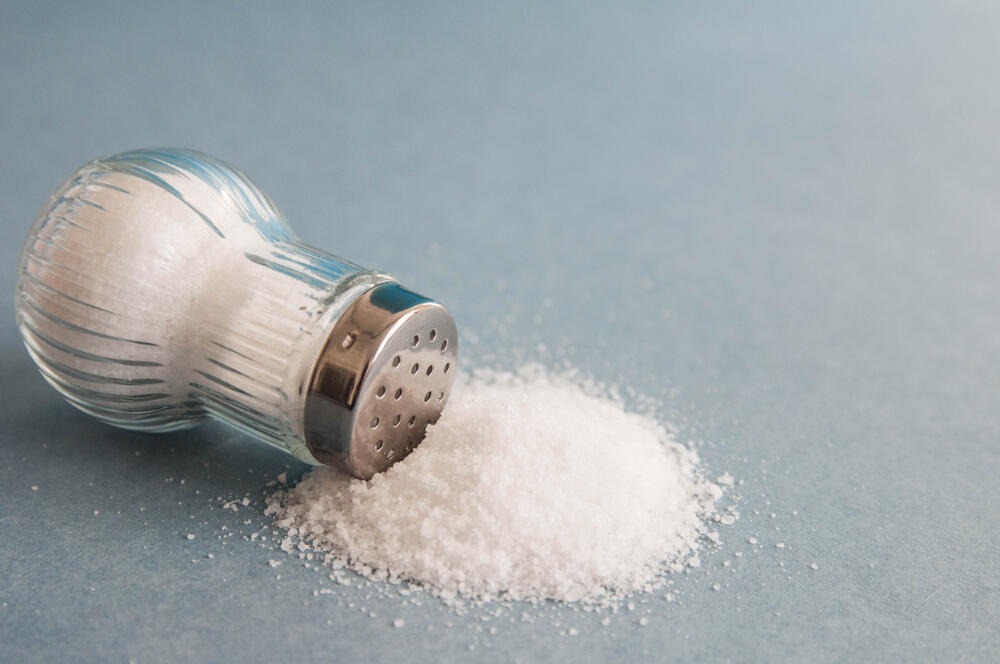Getting your Trinity Audio player ready...
A new study has found a potential link between a high-salt diet and the development of depression-like symptoms in mice, suggesting that dietary habits may play a larger role in mental health than previously understood.
The research, published in The Journal of Immunology, observed mice fed either a standard diet or a high-salt diet over a period of five to eight weeks. The mice were monitored for behavioral changes, with one group exposed to sustained stress used as a positive control—a common model for studying depression.
“Mice on the high-salt diet displayed behaviors similar to those in the stressed control group, indicating that salt intake may have triggered depression-like symptoms,” said Dr. Ofer Shamgar, head of the psychiatric division at Rambam Health Care Campus in Haifa. “Additionally, researchers identified elevated levels of the cytokine Interleukin-17A (IL-17A), which is associated with the onset of depressive symptoms.”
Further analysis showed that certain cells in the high-salt group produced increased levels of IL-17A. The cytokine was found in higher concentrations in the spleen and various brain regions of these mice.
In the study’s second phase, scientists attempted to block the IL-17A-producing cells while maintaining the high-salt diet. As a result, IL-17A levels remained stable and depression-like behaviors did not increase.
“This suggests a causal link—at least in mice—between high salt consumption and depressive symptoms,” Shamgar said. “It appears that elevated salt intake boosts IL-17A production, which is likely a contributing factor in the development of depression in mice, and possibly in humans as well.”
What can we learn from this?
Dr. Shamgar: “In recent years, several studies have been published showing a connection between high salt consumption and the prevalence of depression and anxiety. These studies did not show a causal relationship—whether high salt intake actually causes depression, or whether, for example, people suffering from depression tend to consume more salt. The study we’re discussing brings something new: although it was conducted on mice, it’s the first time a causal link has been shown between high salt intake and depression, along with a biological explanation for the mechanism involved.”
 Dr. Ofer ShamgarPhoto: Rambam Health Care Campus
Dr. Ofer ShamgarPhoto: Rambam Health Care CampusThe current study was conducted on mice, which are commonly used as an important tool for data collection and often provide valuable insights. However, further research will likely be needed to determine whether humans would experience similar results and what the long-term implications could be.
“Mice are not humans, and depression-like symptoms in mice—such as reduced movement, a drop in exploratory behavior, and social withdrawal—are equivalent to depression in humans, but not exactly the same,” Dr. Shamgar adds. “It’s also important to note that the causes of depression are many and varied. Salt consumption may contribute to these causes, but that doesn’t mean if we start telling patients to ‘eat less salt,’ they’ll all recover from depression or that we’ll prevent all cases of depression worldwide.”
He adds: “If it turns out that these findings can indeed be translated to humans, I would assume the recommendation going forward would be simply to eat less salt, and thereby reduce the risk of depression—just as those who eat less salt reduce their risk of high blood pressure, even if it doesn’t prevent it completely.”
Another reason to cut your salt intake
The latest study joins a growing body of evidence from recent years pointing to a strong connection between what we eat and our physical and mental well-being. Nutrition and its impact on mood are no longer considered fringe topics—they are now central to modern concepts of holistic health. In this context, the study adds another dimension to the case for reducing salt intake—a key component of the Western diet, already known to contribute to a wide range of diseases.
“There is now clear evidence of a strong link between our digestive system and the brain, or in professional terms—the gut-brain connection,” says Michal Sukman, chief dietitian for the Central District at Maccabi Healthcare Services. “We know that how the digestive system functions, particularly the microbiome—the quantity and types of bacteria—affects the release of substances like receptors and neurotransmitters in the brain, which can improve mood.”
Get the Ynetnews app on your smartphone: Google Play: https://bit.ly/4eJ37pE | Apple App Store: https://bit.ly/3ZL7iNv
She adds: “We apply this approach extensively in treating patients with depression and anxiety, and even more severe conditions like schizophrenia. We’ve seen that dietary changes can influence symptoms. When we consume large amounts of salt—typically found in processed foods—we know that these are less healthy options. So if I take observational data from mice and try to apply it more broadly, I can absolutely consider the possibility that salty or processed foods may impact our mood.”
What other risks are associated with high salt intake?
“Our body needs salt for basic functioning, but modern diets lead us to consume far more than necessary because sodium is a cheap and effective preservative. There’s also an evolutionary factor—sodium was once scarce, and we learned to prefer foods that supplied what we lacked.
“Observational studies show that people who consume a lot of salt usually get it from processed foods. Table salt added at home accounts for, at most, a third of our sodium intake—even if we salt our food. The real issue lies in processed foods, which contain much higher levels of salt. These foods are more strongly linked to overall disease and illnesses such as cancer and cardiovascular disease.”
How can we reduce salt consumption?
“The simplest way is to cut back on processed foods and avoid items labeled as high in sodium. Also, when cooking, it’s best to add salt at the end of the process—this makes its flavor more prominent, and you end up using less overall.”





